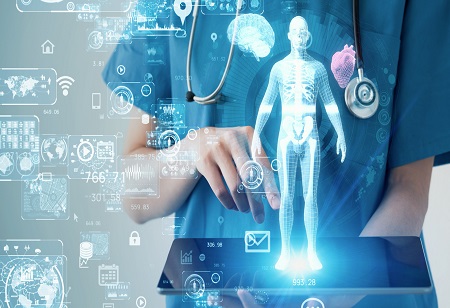Abhrasnata Das | Thursday, 15 December 2022

A recent World Health Organization (WHO) poll found that just 5 percent of the world's population currently satisfies actual health criteria, 20 percent of the population can be diagnosed with an illness at any one moment, while the remaining 75 percent are in sub-health conditions. Health-related concerns have undoubtedly garnered more attention globally, which has also sparked the rapid growth of the global health business and the advancement of smart preventative healthcare. There will be a fresh wave of economic growth as the global smart healthcare sector develops. Health management, medicine, health care goods, nutritious food, medical equipment, sports fitness, and health consultancy are all growing industries with enormous markets and development potential. In this article, let's look into how the healthcare industry is transiting towards preventive care, and explore the key technologies that are enabling it.
AI - a preventive healthcare technique Improved primary care, cheaper medical costs, and more effective preventive care are all made possible by ongoing advances in augmented intelligence. AI-driven preventative treatment can help patients with chronic illnesses including diabetes, asthma, and chronic obstructive pulmonary disease live longer and have better quality of life (COPD). Predictive models employ historical patient data to find patterns that point to potential outcomes. Patient data is continually incorporated by machine learning to improve the accuracy of individual forecasts. Predictive models assist healthcare professionals in designing more effective care plans by assisting them in understanding risks, prospective illness development pathways, and healthcare needs. Medication adherence has a direct influence on outcomes, lifespan, quality of life, and healthcare expenses in chronic illnesses. The management of diabetes and asthma depends heavily on adherence to at-home drug administration. For instance, research briefing in the 2021 issue of Nature Medicine reveals a wireless sensor system that makes use of artificial intelligence to track when patients use their inhalers and insulin pens. Additionally, the technology detects mistakes in the procedures followed for correct administration and indicates them so that patients can refine their method. The research verified that the system correctly detected when patients used an inhaler or an insulin pen (99 percent accuracy). The findings also demonstrate accuracy in identifying skipped stages and erroneous administration times.
Big Data - Impact on research One area where research, processing, and data analysis have a considerably higher influence is big data. It includes everything from clinical and pharmacological research to prevention and diagnostics in the field of health. To handle the amount of data they receive and create, institutions are utilizing the analytical platforms. Big data approaches result in a huge cost savings. The most important element is to possess the intelligence to identify and evaluate the important facts from the large data saved. Based on the big data phenomenon, the health sector is undergoing a significant shift. The quantity and variety of circulated digital data are rapidly increasing, and as a result, they are now processed, analysed, and used on a worldwide basis. The health sector has seen a significant "boom" in data coming from the widest range of sources. In addition, there is significant indication that the study of massive datasets will be the next major frontier in epidemiology given recent scientific advancements (big data). According to an IBM research, the global healthcare sector will produce 25,000 petabytes of data by 2020, which is more than 5000% more than it did in the preceding eight years.
Smart care and health 4.0 With the introduction of new technology and fresh perspectives in the healthcare business, the idea of smart care has gained more traction and changed how the industry thinks. The health industry is undergoing a change thanks to digital technologies, which are providing services that are more patient-centered and have better cost-benefit ratios. This is introducing a number of fresh ideas to various sectors in the framework of industry 4.0. In that sense, "health 4.0" can be viewed as a fresh technical and practical approach that will immediately impact the creation of novel therapies, patient monitoring, and resource management in healthcare facilities.
Proceeding Ahead Although the democratization of data has altered how people view healthcare, there is little question that future developments in technology such as artificial intelligence (AI), big data, and more will revolutionize the way that healthcare is delivered. Today's quantum computers are already potent enough to create unique medicine combinations that cater to the individualized demands of every person in the world. Contrarily, 3D printers will significantly alter every component of the drug development ecosystem. A new generation of youthful, independent, connected individuals will be liberated and the playing field will be leveled by intelligent medical care in the not too distant future. It should be highlighted that technology is making strides toward intelligently preventing medical problems, and in the process, it is opening up a whole new sector of medicine that will have a significant impact.